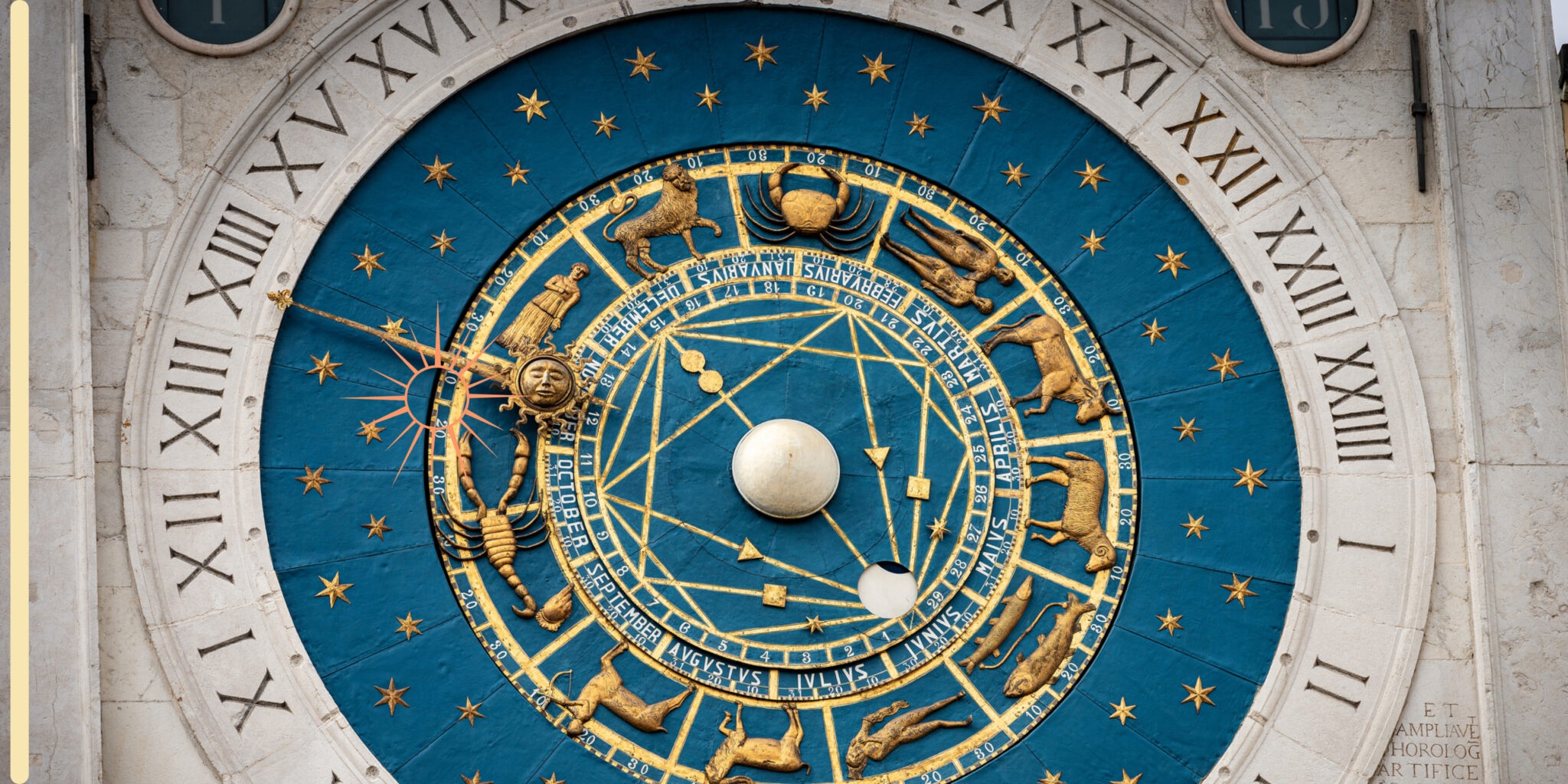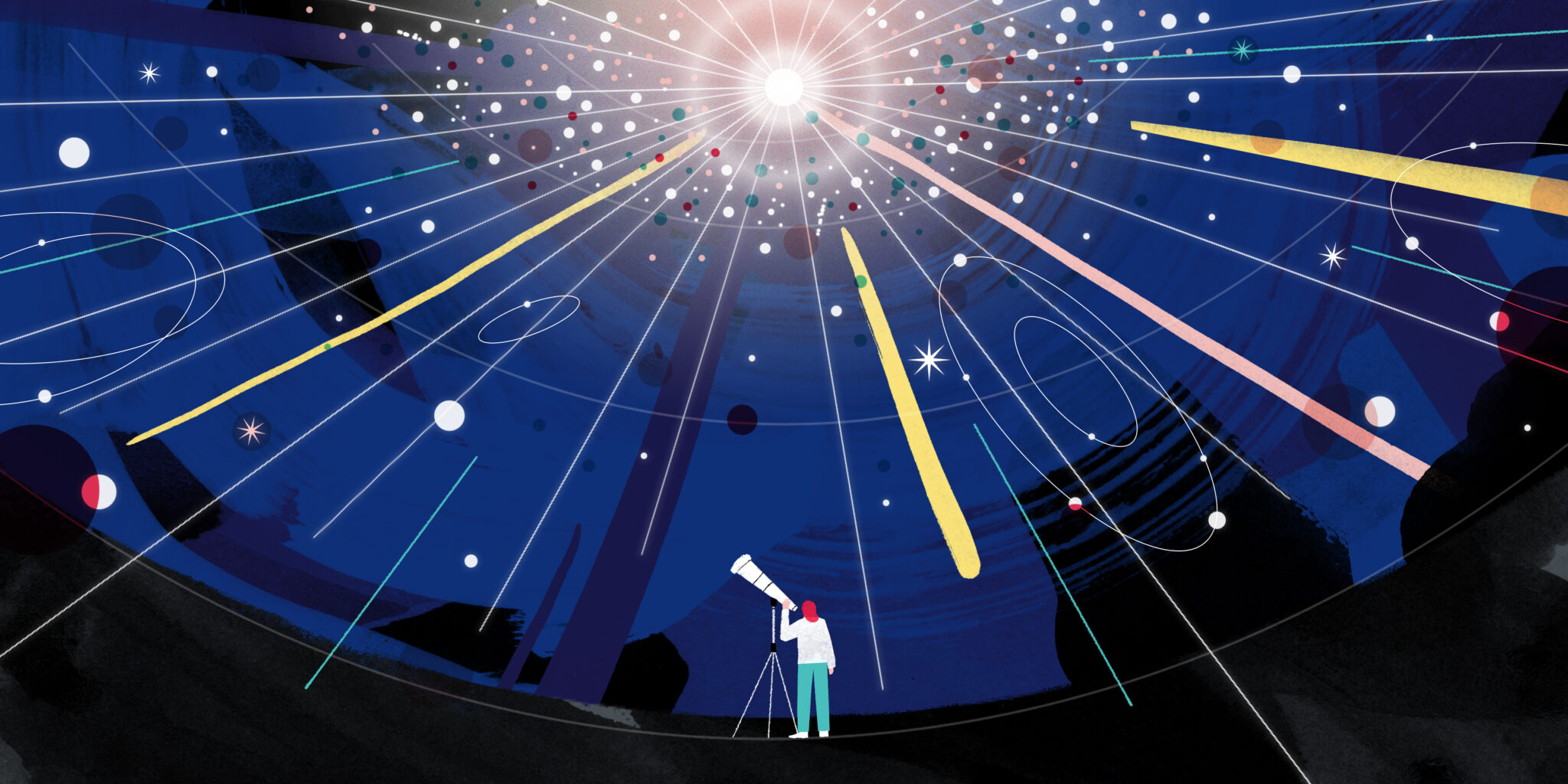Read Part I, Searching for God Through the Logic of the Cosmos
For over two thousand years cosmological arguments for the existence of God were articulated and refined by pagan, Jewish, Christian, and Islamic philosophers. However, in the 18th century, Enlightenment philosophers argued that the idea of a cosmic beginning was an empirical absurdity and dealt them what appeared to be mortal blow.
Both Immanuel Kant and David Hume contested that “a first beginning in time” was an “absolute impossibility” because it is “empirically impossible.”
Yet, the roots of Cosmological arguments were strong and subsequent scientific discoveries jolted them to life again.
The Dawning of a New Cosmology and the “Problem of a Beginning”
With 20th century physics, many previously impossible things became actual. Atoms stopped behaving according to classical rules of predictability and permanence, and mathematics revealed cracks in its own foundations. Space turned out to be neither static nor mechanistic, and time was suddenly a warpable constituent of space. As many aspects of the physical world were revealed as “spooky” to those who preferred classical Enlightenment categories, the prospect of a beginning of time emerged from Einstein’s equations even as he actively tried to exclude such a possibility. Belgian priest George Lemaitre’s mustard seed cosmos based on Einstein’s equations—which he called the Primeval Atom Cosmology—was mocked as a “repugnant” “popish theory” of a “Big Bang” that was a “merely a confusion between physics and a theology of creation.” Yet, a century later, Lemaitre’s Big Bang remains, having passed every scientific test that physicists could subject it to.
More recent developments related to the Borde–Guth–Vilenkin (BGV) theorem have shown that, even without a Big Bang, the universe must have had a beginning. While Kant and Hume avowed a beginning in time an empirical impossibility, physicist Alexander Vilenkin affirms that “cosmologists can no longer hide behind the possibility of a past-eternal universe. There is no escape: they have to face the problem of a cosmic beginning.”
New Horizons for the Cosmological Argument
Contemporary versions of the cosmological argument incorporate the fact that there is good scientific evidence for a beginning in time. The “Big Bang” is now the standard theory of the history and development of the universe and this theory entails an initial cosmological singularity. Thus, explains cosmologist Paul Davies, “the big bang represents the creation event; the creation not only of all the matter and energy in the universe, but also of space-time itself.”
In the late 20th century, philosopher William Lane Craig revived the centuries-old kalam cosmological argument in light of big bang cosmology and mathematician David Hilbert’s argument that
“the infinite is nowhere to be found in reality.”
Craig starts with the observation that everything that begins to exist has a cause. Since the universe began to exist, it therefore has a cause. Craig further argues that sustained reflection reveals that this Cause possesses properties that have traditionally been attributed to God—such as being without a beginning, initially timeless, the uncaused First Cause, enormously powerful and possessing libertarian freedom.
Another contemporary version of the cosmological argument is found in the work of philosopher Robert Koons. Koons’ revised argument aims at establishing the existence of a first cause of the cosmos, which he takes to consist of all of space-time, including all of its contents, matter and energy. For Koons it does not matter whether the cosmos is structured as a single universe or as a multi-verse of many parallel (or infinite) universes. All that matters is that we inhabit one of them.
Self-Causing Universes from Nothing?
As the cosmological ground has shifted beneath the boundaries of cosmological arguments, so have the responses of those who reject them. Straying from the path of Hume, philosopher Daniel Dennett acknowledges that the cosmos requires a cause, but he asserts that this cause is the universe itself.
The universe “creates itself ex nihilo,” declares Dennett, “or at any rate out of something that is well-nigh indistinguishable from nothing at all. Unlike the puzzlingly mysterious, timeless self-creation of God, this self-creation is a non-miraculous stunt that has left lots of traces. And being not just concrete but the product of an exquisitely particular historical process, it is a creation of utter uniqueness…” Perhaps nothing can cause something to come into existence. Theists, however, remain unconvinced.
Following the Path of Reason to God
The cosmological argument is a logical ascent that begins from the simple premise: “something exists.” A series of steps then demonstrates that in order to explain the fact that something exists, one’s mind must mount the ultimate rational peak to posit the existence of a Creator. Yet, does the fact that “something exists” really require an explanation? Many philosophers, such as William Rowe, think not.
While Rowe believes that many versions of the cosmological argument are deductively valid, he asks, “Why, should we think that everything has to have an explanation? What’s wrong with admitting that the fact that there are and have always been dependent beings is a brute fact, a fact having no explanation whatever? Why does everything have to have an explanation anyway?”
Perhaps there are just some things in the universe—such as the universe itself—that require no further explanation.
According to Helen De Cruz and Johan De Smedt, the reason that cosmological arguments convince some, but not others, is ultimately a matter of “human cognitive predispositions” and “particular intuitions about causality and agency.” While the intuitions that underlie cosmological reasoning “form a stable part of human cognition,” these same intuitions are “vulnerable to evolutionary debunking arguments.” If one chooses to appeal to the evolved nature of causal intuitions in order to debunk them, however, there is a steep cost—namely, one will also destroy the basis for both scientific reasoning and commonsense reasoning in the process. As De Cruz and De Smedt explain: “Evolutionary debunking arguments” from cognitive science “not only undermine the cosmological argument, but also scientific practice and commonsense reasoning.”
It seems that faith in our cognitive intuitions is required for anyone who desires to seek a deeper logical understanding of why the universe exists. For the ceaselessly inquisitive minds who dare ask the question, then, there still remains a rational path to God.
Dr. Joshua M. Moritz teaches astronomy, biology, and physics at the St. John Chrysostom Academy in Bethlehem, PA. He has authored numerous books and articles, including Science and Religion: Beyond Warfare and Toward Understanding (Anselm Academic, 2016) and The Role of Theology in the History and Philosophy of Science (Brill, 2017) .




